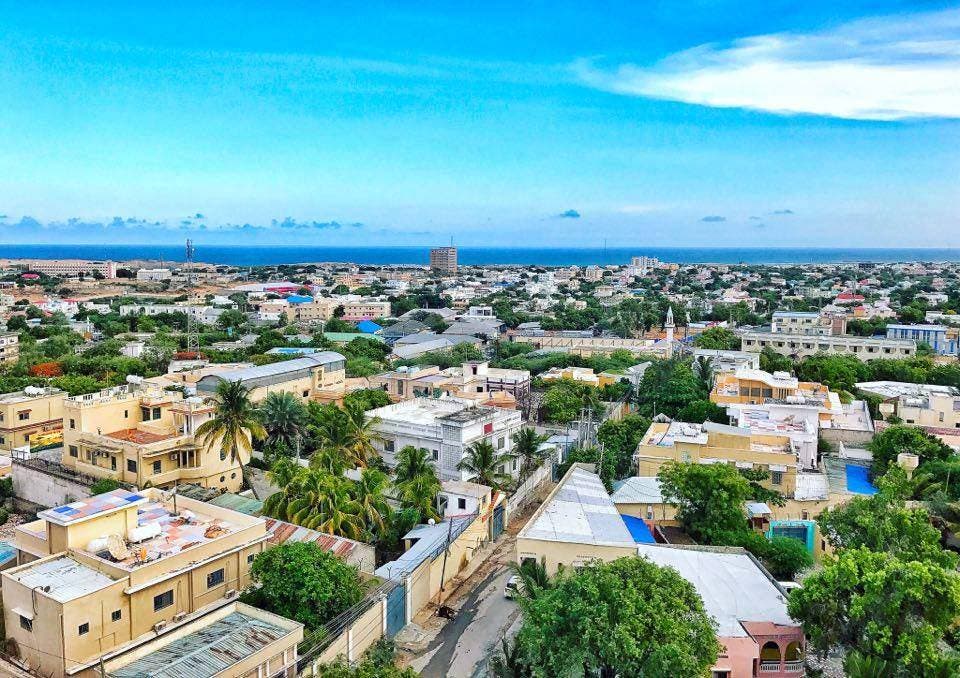Along the Makkah Al Mukarramah Mogadishu´s main street the fortified upmarket hotels and restaurants that are frequented by the who is who in Somalia are a major feature of the capital.
And in these hotels and restaurants, another phenomenon is quickly becoming a feature of Mogadishu; former Ministers, MPs and top government officials rendered jobless hanging out in a limbo.
Somalia now finds itself having to deal with a growing number of these ex-top government officials that go way back to the Abdullahi Yusuf led Transitional Federal Government to the last week’s ministerial sackings by the Farmaajo administration.
And these are how the figures stand in the sacking and hiring in post-civil war Somalia;
This is a country that has had 11 Prime Ministers within a period of 10 years, 7 Heads of Intelligence within the last 7 years, the city of Mogadishu has seen 7 Mayors in 9 years. In seven years there have been 7 Police Commissioners 10 Chiefs of Staff for 3 Presidents and 5 military commanders in seven years.
The latest of the victims of these sackings former Foreign Affairs Minister Yusuf Garaad is of the opinion that there should be continuity in serving the ministries and that frequent sackings and short terms appointment is detrimental to Somalia a country emerging from devastating civil war.
“I am the tenth Foreign Affairs Minister to meet with the same Foreign Affairs Ministers from other countries. ” Garaad told journalists on Monday at a handing over ceremony to welcome the new man in charge of Foreign Affairs Ahmed Isse Awad
“ We should borrow a leaf from neighbouring countries. Amina Mohamed has finished the last five years with President Uhuru Kenyatta serving as foreign Affairs Minister” the outgoing Minister said
Consequently, this growing number is slow but steadily having an impact on the politics of the day if the latest happenings in the Horn of Africa is anything to go by
Farmaajo´s political headache that marked his first year 2017 in the office can be directly attributed to this growing number of so-called jobless politicians, analysts say.
“What we are seeing now is an increasing number of ex-Ministers and ex-other top government officials who are desperately seeking re-appointment and relevance after their end of term or sacking… It is this group of politician that usually transforms into the opposition in quotes and government critic either to seek compromise or remain relevant” Rashid Abdi a Nairobi based political analyst told Radio Dalsan.
Indeed the current Farmaajo administration has had to face a growing opposition that is largely made of ex-top government officials who may have served in the past administrations.
“The reality is that we have an opportunists opposition. It’s a situation where a government is opposed by eight politicians from one community but when the President appoints one of them they all turn against him because they are all fighting for one post that is allocated to their community. This is the kind of opposition democracy we are experiencing in the country” Abdishakur Mire a Federal MP told a Party conference sometimes before the current “crackdown” on opposition by the Farmaajo administration that led to the arrest of former Minister and Presidential candidate Abdirahman Abdishakur Warsame.
In the present situation, the Farmaajo administration finds itself in a challenging position where it has to charm and promise posts to former top government officials but in reality, the number is in hundreds meaning accommodating all of them would be an impossible task.
Farmaajo had an enormous baggage of expectations that were put on his shoulders when he took over the office and among them was how to deal with the “hanging” politicians phenomenon.
He absorbed up to 50 persons mostly former politicians as “advisors” to Villa Somalia and federal ministries but this was short lived when the Somali taxpayer questioned the hiring.
“ There is much possibility that these so-called hanging politicians can be used as hired guns for proxy political wrangles or even influenced by outside forces bent at destabilizing the government” Feisal Noor a political commentator told Radio Dalsan.
The current Parliament is said to be made up of the youngest politicians ever since Somalia´s independence.
According to records availed to Radio Dalsan, 43 parliamentarians out of 275 are below the age of 30 meaning the current Parliament has the largest number of young politicians. But what happens to these crop of politicians after their first term comes to an end?
The sight of jobless politician sipping Latte coffee in groups at the fortified hotels along Makkah Mukarammah road conspiring on their next move to survive politically is a feature that is likely to be with us for a long time to come.






